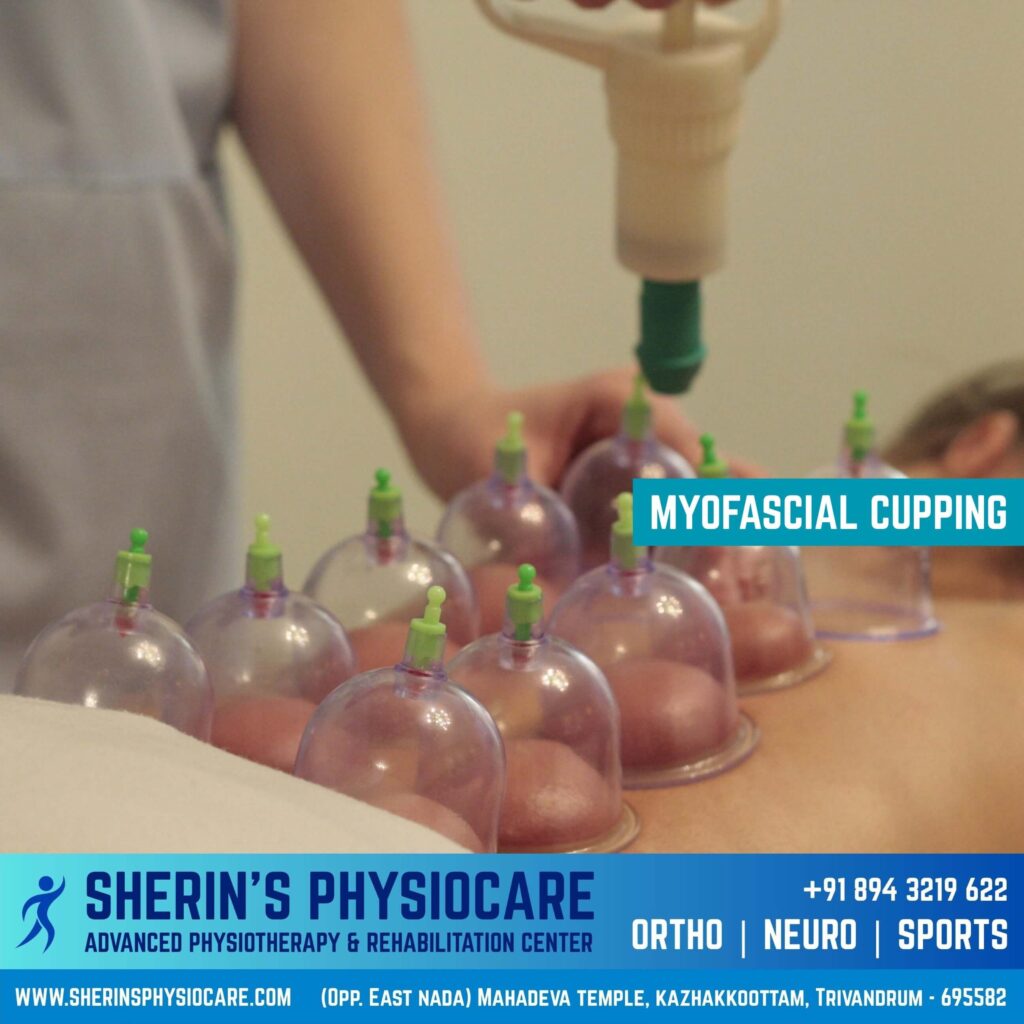
Myofascial Cupping
Myofascial cupping promotes healing by increasing blood flow, reducing inflammation, and releasing muscle and fascia tension. This treatment uses a combination of massage strokes and negative pressure to lift, separate and stretch underlying soft tissues. Cupping is typically applied on the neck, shoulders, back, thigh, calves, and upper arm
- Back & neck pain
- Muscle tightness & stiffness
- Frozen shoulder
- Sports injuries & muscle soreness
- Headaches & migraines caused by muscle tension
- Postural imbalances
- Joint pain and restricted mobility
- Chronic pain conditions (like fibromyalgia)
- Increased circulation
- Increased joint range of motion
- Reduced muscle tension
- Increased Lymphatic drainage
- Increased connective tissue mobility
Myofascial Cupping - F.A.Q
1. What is myofascial cupping therapy?
Myofascial Cupping is a physiotherapy technique that uses suction cups to gently lift the skin and underlying tissues, helping to release muscle tightness, improve blood circulation, and reduce pain.
2. How does cupping therapy work?
The suction created by cups pulls the skin and fascia upward, loosening adhesions, increasing blood flow, and promoting faster healing in the treated area.
3. What conditions can be treated with myofascial cupping?
It is effective for back pain, neck pain, frozen shoulder, muscle tightness, sports injuries, postural issues, headaches from muscle tension, and chronic pain conditions like fibromyalgia.
4. Is cupping therapy painful?
Cupping is generally not painful. You may feel a mild pulling or tight sensation during the session, and temporary red or purple marks may appear, which usually fade within a few days.
5. Are the cupping marks harmful?
No, the marks are not bruises. They are simply a result of increased blood circulation under the skin and usually disappear within 3–7 days.
6. How long does a cupping therapy session last?
A typical session lasts between 15–30 minutes, depending on the condition being treated and your individual needs.
7. How many cupping sessions will I need?
This varies based on your condition. Some people feel relief after 1–2 sessions, while chronic issues may require a series of treatments combined with physiotherapy exercises.
8. Is cupping therapy safe?
Yes, when performed by a trained physiotherapist, myofascial cupping is safe and effective. It is non-invasive and drug-free.
9. Can athletes benefit from cupping therapy?
Absolutely! Many athletes use cupping to speed up recovery, reduce muscle soreness, and improve flexibility and performance.
10. Why choose SHERIN'S PHYSIOCARE for myofascial cupping ?
At SHERIN’S PHYSIOCARE, Kazhakkoottam Trivandrum, we combine expert physiotherapy care with advanced myofascial cupping techniques for long-lasting results. Our treatments are personalized, evidence-based, and focused on relieving pain, improving mobility, and preventing recurrence. With a patient-first approach and state-of-the-art rehabilitation methods, we ensure you recover safely and effectively.
